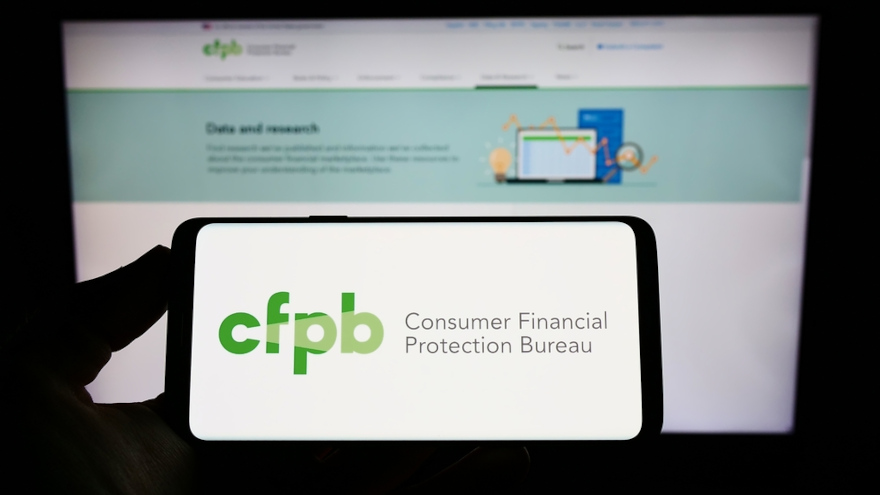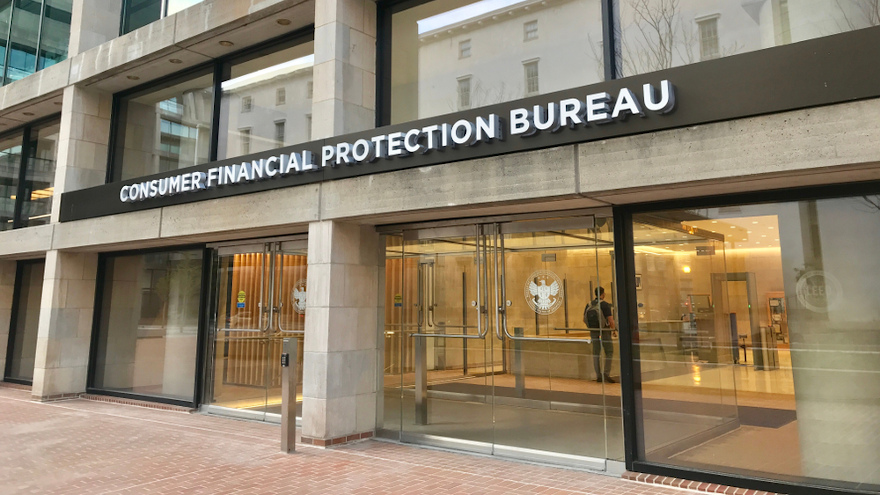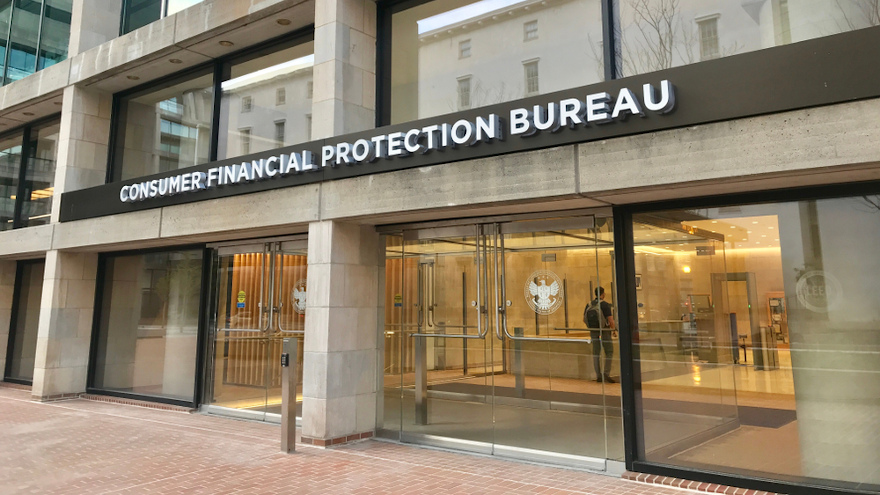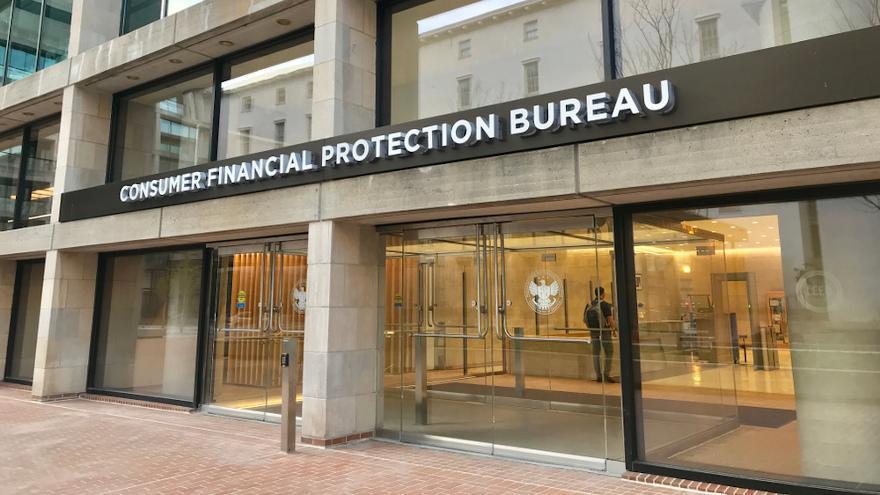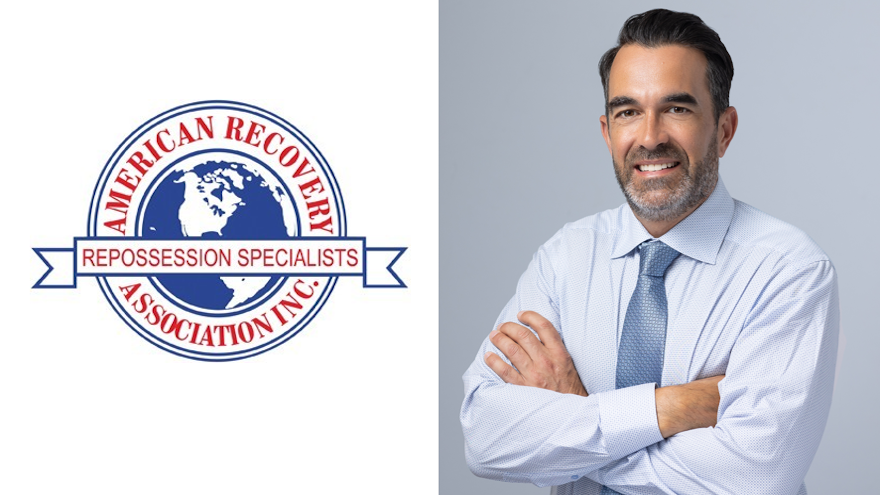Two of the senior vice presidents from the American Financial Services Association took time during their orchestration of the 2023 Vehicle Finance Conference in Dallas for this episode of the Auto Remarketing Podcast.
Celia Winslow and Danielle Fagre Arlowe discussed the latest developments on the federal and state level, respectively, in connection with actions by lawmakers and regulators.
To listen to the conversation, click on the link available below.
Download and subscribe to the Auto Remarketing Podcast on iTunes.
While still on the watch for “cutting corners to fuel their profit model,” the Consumer Financial Protection Bureau (CFPB) recently released its annual report that details improvements made by the three largest credit bureaus — Equifax, Experian and TransUnion.
The Fair Credit Reporting Act requires the CFPB to submit an annual report about complaints submitted by consumers regarding the nationwide consumer reporting companies. Officials said the report is based on the 488,000 consumer complaints the CFPB transmitted to Equifax, Experian, and TransUnion from October 2021 through September 2022.
The CFPB said through a news release that the findings follow last year’s report that detailed “failures” by the nationwide companies when responding to consumer complaints submitted to the CFPB.
The bureau indicated Equifax, Experian, and TransUnion have remedied some of the issues identified in last year’s report.
Specifically, the CFPB found Equifax, Experian, and TransUnion have:
—Changed how they respond to complaints: Equifax, Experian, and TransUnion use of problematic response types described in last year’s report has declined. Most complaints now receive more substantive responses.
—Provided more tailored complaint responses: Across all three companies, most responses now describe the outcomes of consumers’ complaints. In September 2022, the nationwide companies provided a tailored response to more than 50% of complaints that were closed with an explanation or relief.
—Reported greater rates of relief in response to complaints: In 2022, TransUnion reported providing relief in most complaints. Experian reported providing relief in nearly half of complaints. Equifax reported that it did not provide relief, but its written complaint responses suggest that its rates of relief are comparable to the other two companies.
The CFPB also highlighted other consumer reporting problems and reminded consumer reporting companies of their obligations to consumers under the Fair Credit Reporting Act.
For example, officials pointed out an earlier report revealed how the nationwide consumer reporting companies had often allowed their processes to be used to “coerce individuals to pay medical bills they may not even owe.”
The CFPB said it also issued straightforward guidance on permissible purposes for accessing consumer reports, identifying and eliminating obviously false and junk data, and resolving consumer disputes.
Additionally, the CFPB reiterated that it has taken action against consumer reporting companies when they have broken the law, as well as affirmed the ability of states to police credit reporting markets.
The CFPB now is expecting Equifax, Experian and TransUnion to continue improving how they serve consumers, recommending that:
—Consider consumer burden when implementing automated processes: When companies consider introducing automated processes that will affect their customers, particularly those that relate to a legal right, the CFPB said they should consider consumer burden, especially whether a change will require consumers to do more work to exercise their legal rights.
—Recognize that technology is also improving for consumers: Advances in communications technologies mean consumers do not necessarily need to write complaints on their own. Instead, the CFPB said communications technologies may ease the writing burden. Such innovations, including ones that can generate letters for consumers, may create similar-sounding complaints that are, in fact, from unique individuals with independent concerns. The assumption that similar-sounding letters are from third parties will increasingly be wrong.
—Consider how to transition the market from control and surveillance to consumer participation: The bureau noted one potential reason there are so many reported inaccuracies in consumer reporting data is that consumers are several degrees removed from their own data. Enabling increased consumer participation on the data side of consumer reporting has the potential to create a fairer market with added benefits for consumers, consumer reporting companies, and lenders.
Along with noting those improvements and sharing recommendations, CFPB director Rohit Chopra said in the news release, “TransUnion, Equifax, and Experian routinely top the list of complaints submitted by consumers.
“We will be exploring new rules to ensure that they are following the law, rather than cutting corners to fuel their profit model,” Chopra went on to say.
The entire report examining Equifax, Experian, and TransUnion can be downloaded via this website.
Credit Acceptance responded to a robust lawsuit brought by the Consumer Financial Protection Bureau and the New York attorney general on Wednesday triggered by an investigation that began in May 2019.
New York attorney general Letitia James and the CFPB said through a news release that they are suing Credit Acceptance “for deceiving thousands of low-income New Yorkers into high-interest car loans.”
Credit Acceptance responded through a filing with the Securities and Exchange Commission on Wednesday afternoon, saying that “the complaint seeks injunctive relief, an accounting of all consumers for whom the company provided financing, restitution, damages, disgorgement, civil penalties, and payment of costs. We cannot predict the eventual scope, duration or outcome of this lawsuit at this time. As a result, we are unable to estimate the reasonably possible loss or range of reasonably possible loss arising from this litigation.
“The company intends to vigorously defend itself in this matter,” Credit Acceptance added in the filing.
According to the news release from the AG and the CFPB, they said Credit Acceptance misstated key terms on contract agreements, including the principal and interest amounts, and did not disclose thousands of dollars in credit charges.
Officials recapped their investigation found that while Credit Acceptance’s contracts in New York claimed an annual percentage rate (APR) of 22.99% or 23.99%, they said they found the finance company charged more than 38% APR on average.
“And on numerous occasions charged more than 100 percent APR,” officials said.
As a result of what officials attributed to the interest rate, the CFPB and the attorney general said nearly 90% of New York contract holders became delinquent on their payments at some point, “often leading to additional fees that added to the cost of their already expensive car loans.
“More than half of New York borrowers failed to repay their loans by the terms of the loan agreements, with 44 percent of New York borrowers experiencing repossession at some point,” officials continued in the news release.
The CFPB and the attorney general then offered an instance of why they brought this lawsuit.
“As an example of CAC’s typical business practices, one consumer, who supports two minor children, signed up for a CAC loan requiring her to pay more than $13,000, despite the dealer needing only $5,614 to sell her the car. After she paid more than $7,600 to CAC, they repossessed her vehicle, sold it at auction, and sued her for more than $7,500,” they said.
“The lawsuit alleges that CAC projected, down to the penny, how much money it could extract from borrowers through loan payments, late fees, repossession and auction, debt collection, and wage garnishment, without considering a consumer’s ability to repay their loan,” officials continued. “CAC then offered to split the projected collections with its affiliated dealers. Through this practice, CAC ensured that as long as it collected the projected amount, both CAC and the dealer would profit — even if the borrower ended up in delinquency, default, or had the vehicle repossessed.”
The news release mentioned how Credit Acceptance involved dealerships and investors in its activities triggering the legal action.
“In addition, the lawsuit alleges that CAC cut deals with its affiliated dealerships and assisted them in misleading consumers by including costly add-on products in their purchases,” officials said. “Despite receiving repeated complaints that its dealers fraudulently told consumers that these products were required and that dealers even included the products without the consumer’s consent, CAC took no action to stop this. Instead, CAC continued to incentivize its dealers to push these products and actually adopted e-signing practices that made it easier for dealers to include the products with little or no notice to consumers.
“The final step in CAC’s deception was to unload a large proportion of the loans onto unsuspecting investors, packaging the consumer loans into securities,” officials continued. “In creating, marketing, and selling these securities, CAC represented to initial purchasers, rating agencies, and investors who purchased the securities that the underlying loans complied with applicable law. However, these representations were false, and the lawsuit alleges that CAC’s statements constituted securities fraud under New York’s Martin Act.”
In its filing with the SEC, Credit Acceptance recapped the subpoenas and civil investigative demands the finance company has received from both the New York attorney general and the CRFB. Credit Acceptance said it pushed back multiple times against what the CFPB sought through these demands, using the opportunity through a Notice and Opportunity to Respond and Advise (NORA) letter, “disputing that it had committed any violations.”
Credit Acceptance closed its SEC filing by reiterating, “We cannot predict the eventual scope, duration or outcome of the lawsuit at this time. As a result, we are unable to estimate the reasonably possible loss or range of reasonably possible loss arising from the lawsuit. The Company intends to vigorously defend itself in this matter.”
James, the New York AG, and CFPB director Rohit Chopra each elaborated why they’re taking this legal action.
“CAC claimed to help low-income New Yorkers purchase cars, but instead, drove them straight into debt,” James said in the news release. “CAC steered hardworking New Yorkers toward financial ruin by tricking them into unaffordable, high-interest auto loans while cutting backroom deals with dealers to protect their own profits. These predatory actions hurt innocent people and left them with mountains of debt. I thank the CFPB for their partnership to stop this harm and protect everyday New Yorkers.”
Chopra added, “Credit Acceptance obscured the true cost of its loans to car buyers, leading to severe financial distress for borrowers and subjecting them to aggressive debt collection tactics on loans its own systems predicted that borrowers can’t afford to repay. The CFPB’s action with the New York Attorney General seeks to end Credit Acceptance’s unlawful practices and makes consumers whole.”
Perhaps one segment of the annual report generated by the ombudsman of the Consumer Financial Protection Bureau might be of particular interest to auto finance companies and their compliance departments.
During the last fiscal year, the CFPB ombudsman launched its post-examination survey of supervised entities, which was aimed to serve as “a confidential avenue for supervised entities to share their feedback and recommendations on the CFPB examination process after participation in a supervisory examination.”
Then the ombudsman’s office was supposed to provide survey participants’ unattributed feedback and recommendations to the CFPB.
The survey focused three areas:
—Supervision materials and resources: Includes topics such as information availability, functionality, and content for review by entity representatives who will engage with any part of the examination.
—Interpersonal communications: Includes communications between entity representatives and anyone at the CFPB before, during, or after an examination, using any medium or format.
—End of the examination: Includes topics such as timing, knowledge of outcomes or resolutions, clarity in expectations of closure, and awareness of the appeals process.
In the annual report, the CFPB ombudsman broke down findings in each of those areas, along with what did and did not work well to go with potential changes. Here are those details:
Supervision materials and resources
What worked well?
• Advance notice of the examination
• A clear timeline
• Examination that stayed on schedule
• Information requests that were well-coordinated and detailed
• No surprises from requested materials
• Easy to follow questions
• Explanations when there were examination scope changes
• Ample time to clarify and respond to information requests
• Examination resources publicly available
What did not work well, if anything?
• Significant or broad initial and follow-up information requests
• Tight deadlines to deliver complex information requests
• Even in circumstances where entity was provided additional time, those adjustments were insufficient given CFPB requests
• Expanded examination scope after kickoff
• Lack of coordination/multiple ongoing examinations
• Information requests same for information already provided earlier in examination
What would you change moving forward?
• Consider entity’s resources when scheduling examinations that may be close in time
• Provide entities with earlier notice of the examination schedule
• Provide opportunities during the examination to meet to clarify written answers
• Provide entities with the ability to update or confirm information from prior examination(s) to eliminate identical requests
• Designate more time to provide information that the CFPB has requested
Interpersonal communications
What worked well?
• Overall, excellent interactions with team
• Team was patient and available for meetings, emails, and calls to discuss concerns or clarifications
• Collaborative in all phases of examination
• Team worked to ensure facts were correct
• Team did not form opinion until end of examination
• Prompt responses to specific and general compliance questions
• Used tracking sheet to monitor progress
• Frequent meetings for all to be informed
• Virtual environment worked well
• Virtual meetings seemed more intentional
What did not work well, if anything?
• Insufficient notice before the examination started
• Lack of continuity in awareness across team of documents entity already provided
• Some issues obtaining clarity on entity’s specific questions
• During the examination, lack of transparency in communication resulted in challenges for entity in responding to CFPB requests
• No clear end date of the examination shared with entity
• Lack of communication and certainty about the examination findings
• Some technology issues with communicating via portal to share documents
What would you change moving forward?
• Provide transparency or as much information about the examination in advance as possible, such as regarding the examination schedule, examination scope, updates to the scope, the focus of additional information requests, and what documents/materials the entity should have available for reference and in what format before meeting with the examination team
• Provide more opportunities to meet and resolve the differences between the CFPB data request format and what the entity may be able to provide
• Implement an information request tracker or tracking sheet for all requests made by the CFPB
End of the examination
What worked well?
• Clear timing of when to expect final report
• Received final report in a reasonable time
• No surprises at closure or in final report
• Exit meeting was concise, thorough, and kept everyone informed
• Aware of next steps through formal and informal meetings
• Solidly understood closeout process
• Clear information about nature of issues team identified
• Constructive dialogue and open communication about end of examination
• Meetings gave entity opportunity to have position on issues heard
What did not work well, if anything?
• Unclear when examination ends
• Lack of transparency regarding decision making and timing for closure
• No transparency about findings
• Lack of meaningful communication about timeframe for next steps, such as timing for exit interview or final report
• Examination had no end or completion
• Entity had no exact timeframe as to how it should proceed
• Unclear about purpose of keeping examination open
What would you change moving forward?
• Reduce the time between the exit meeting and receipt of final examination results/report
• Offer more details in update meetings about status of final report and processing of report by headquarters
• Provide more clarity and transparency on what to expect when the onsite portion of the examination ends and when to expect the final examination report, so the entity can plan its examination and other resources accordingly
• Engage in more discussion with the entity around the remediation timeframes and remediation steps taken
• Provide transparency around serious findings sooner rather than later for earlier attention and remediation
To maintain the confidentiality of potential survey participants, supervised entities that have feedback or questions about our survey program can contact the CFPB ombudsman directly at [email protected] or (855) 830-7880.
The banking industry basically told the Consumer Financial Protection Bureau: “We’ll see you in court.”
Four banking associations, plus the U.S. Chamber of Commerce and two other business-driven organizations in the Lone Star State, filed a lawsuit in the Eastern District of Texas on Wednesday against the CFPB for exceeding its statutory authority when amending its examination manual.
Other co-plaintiffs include the American Bankers Association, Consumer Bankers Association, Independent Bankers Association of Texas, Longview Chamber of Commerce, Texas Association of Business, and the Texas Bankers Association.
The co-plaintiffs are challenging the CFPB’s recent update to the unfair, deceptive, or abusive acts or practices (UDAAP) section of its examination manual to include discrimination and in particular disparate impact.
The groups said Congress has not given the CFPB the power to do so, as allegations of discrimination are handled by other agencies through statutes such as the Equal Credit Opportunity Act, the Fair Housing Act, and the Home Mortgage Disclosure Act.
According to a news release from the U.S. Chamber, the failure by Congress to grant such authority raises a “major questions” issue as recently decided by the Supreme Court.
The groups believe importing disparate impact into UDAAP will likely result in the disappearance of products consumers currently enjoy and benefit from.
For example, no-fee checking accounts are more often offered to customers with higher balances, which often are individuals further into their careers as opposed to those who are just beginning to work.
The groups said a disparate impact analysis could find that no-fee policies for customers with larger balances constitute age discrimination against younger customers, and therefore banks may no longer be willing to offer such products to consumers for fear that they will be declared unlawful.
“The Consumer Financial Protection Bureau is operating beyond its statutory authority and in the process creating legal uncertainty that will result in fewer financial products available to consumers,” U.S. Chamber executive vice president and chief policy officer Neil Bradley said in a news release. “The CFPB is pursuing an ideological agenda that goes well beyond what is authorized by law and the Chamber will not hesitate to hold them accountable.”
The Consumer Bankers Association recapped that on March 16, the CFPB revised its examination manual to reflect a new belief that the “unfairness” prong of the UDAAP definition can be applied to conduct the CFPB deems discriminatory.
“Throughout the course of many decades, Congress never used the statutory concepts of ‘unfairness’ and ‘discrimination’ interchangeably. Rather, they are distinct, and each has a well-established meaning and scope of application,” CBA said in a news release. “Congress did not authorize or intend for the CFPB to ‘fill gaps’ between the clearly articulated boundaries of antidiscrimination statutes with its UDAAP authority.”
The CBA went on to state that the CFPB’s action has created significant uncertainty in the financial marketplace to the detriment of consumers and banks alike.
Because these changes constitute the issuance of a substantive rule without following the required notice-and-comment process, the lawsuit alleges the CFPB’s actions were procedurally invalid under the Administrative Procedures Act (APA) and must be set aside as unlawful.
Moreover, the CFPB’s actions are also subject to challenge on substantive grounds as “not in accordance with law” and “in excess of statutory jurisdiction, according to the lawsuit.
“CBA and our members firmly oppose discrimination in any form and remain fully committed to expanding access to financial products among underserved communities across this nation,” CBA president and CEO Lindsey Johnson said in the news release. “We wholeheartedly support fair, objective, and transparent enforcement of civil rights and fair lending laws, but recent changes made to the UDAAP Exam Manual by the CFPB represent an enormous self-expansion of the agency’s authority that stands contrary to law and the intent of Congress.
“Not only do these actions raise profound substantive and procedural legal concerns, they also threaten banks’ ability to deliver the products and services millions of Americans rely on to meet their financial needs. If the CFPB believes additional authority is necessary to address alleged discriminatory conduct, we stand ready to work with legislators and the Bureau to ensure the just administration of the law,” Johnson went on to say.
Wednesday’s action follows a recent legal analysis by ABA and other banking groups shared with the CFPB in June detailing how the bureau’s actions exceed its legal authority. The analysis concluded that the new exam manual and related CFPB actions are “contrary to law and subject to legal challenge.”
ABA president and CEO Rob Nichols said in another news release: “The CFPB’s decision to dramatically expand its regulatory reach without any input from the public was not authorized by statute and has significant implications for consumers, banks and the broader financial markets. This is a step we did not want to take, but it was a necessary step given the extraordinary actions of the CFPB.”
The lawsuit — which can be downloaded via this website — also arrived on the same day that the CFPB ordered Regions Bank to pay $50 million into the bureau’s victims relief fund and to refund at least $141 million to customers harmed by its illegal surprise overdraft fees.
From August 2018 through July 2021, the CFPB said in another news release that Regions charged customers surprise overdraft fees on certain ATM withdrawals and debit card purchases. The bank charged overdraft fees even after telling consumers they had sufficient funds at the time of the transactions, according to the bureau.
The CFPB said financial regulators have long cautioned banks against charging this type of overdraft fee.
The CFPB also said it found that Regions leadership knew about and could have discontinued its surprise overdraft fee practices years earlier, but “they chose to wait while Regions pursued changes that would generate new fee revenue to make up for ending the illegal fees.”
CFPB director Rohit Chopra added in the news release: “Regions Bank raked in tens of millions of dollars in surprise overdraft fees every year, even after its own staff warned that the bank’s practices were illegal.
“Too often, large financial firms make a calculation that continuing to break the law is more profitable than following it. We have more work to do to change this mentality,” Chopra went on to say.
The largest monetary penalties handed out by the Consumer Financial Protection Bureau (CFPB) since Rohit Chopra became director in October surfaced publicly on Tuesday afternoon.
And those penalties surpassing $19 million relate to auto financing.
The CFPB penalized Hyundai Capital America for what the regulatory said was repeatedly providing inaccurate information to nationwide credit reporting companies and failing to take proper measures to address inaccurate information once it was identified between 2016 and 2020.
The CFPB explained through a news release that it found that Hyundai’s captive used manual and outdated systems, processes and procedures to furnish credit reporting information that led to widespread inaccuracies and resulted in negative inaccurate information being placed on consumers’ credit reports.
In total, the CFPB said it found that Hyundai Capital America furnished inaccurate information in more than 8.7 million instances on more than 2.2 million consumer accounts during that period.
Officials said their order requires the captive to take steps to prevent future violations and to pay more than $19 million, including $13.2 million in redress to affected consumers who were inaccurately reported as delinquent and a $6 million civil money penalty, making this development the CFPB’s largest Fair Credit Reporting Act case against an auto servicer.
“Hyundai illegally tarnished credit reports for millions of borrowers, including by falsely reporting them to credit reporting companies as being delinquent on their loans and leases,” Chopra said in the news release. “Loan servicers must be complete and accurate when furnishing information that affects a borrower’s credit report.”
Hyundai Capital America purchases and services retail installment contracts and vehicle leases originated by 1,600 Hyundai, Kia, and Genesis dealerships. The CFPB said the captive currently services approximately 1.7 million customers through its retail installment contracts and leases and has more than $45 billion of reported assets as of 2021.
Hyundai Capital America sent this statement to Cherokee Media Group on Tuesday afternoon.
“The Consumer Financial Protection Bureau (CFPB) initiated a review of Hyundai Capital America’s (HCA) credit reporting practices for its consumer retail and lease accounts, which was part of a larger credit reporting review by the CFPB across the industry,” the captive said. “To support our customers and allow us to focus on the future, we have entered into a settlement agreement with the CFPB.
“It is important to note that HCA is not admitting any fault or wrongdoing with respect to credit reporting practices covered by the investigation,” the captive continued. “As part of HCA’s efforts to drive continuous improvement, we have already launched an end-to-end review of our current credit reporting practices. Most importantly, we remain fully committed to providing our customers with timely, accurate, high-quality service and care.”
What went wrong
The CFPB said it received “many” consumer complaints that Hyundai inaccurately reported account information to credit reporting companies. During its investigation, the CFPB said it found that Hyundai repeatedly provided inaccurate credit report information about consumer payments on installment contracts and leases that Hyundai purchased and serviced.
“In many cases, Hyundai knew it was providing inaccurate information and failed to take reasonable measures to address the inaccuracies,” the CFPB said. “Hyundai identified many of the issues causing these inaccuracies in its internal audits, but still took years to address the problems.”
Between January 2016 and March 2020, the CFPB said it also found the captive violated the Fair Credit Reporting Act (FCRA) and its implementing regulation, Regulation V, by:
—Failing to report complete and accurate contract and lease account information: The bureau said the captive repeatedly did not take steps to promptly update and correct information it furnished to credit reporting companies that it determined was not complete or accurate, and continued to furnish this inaccurate and incomplete information.
—Failing to provide date of first delinquency information when required: The CFPB reiterated the FCRA requires data furnishers to provide credit reporting companies the date of delinquency for when a delinquent account is being charged off or placed for collections. The bureau said the captive failed to report a date of delinquency for many consumers who were more than 90 days delinquent.
—Failing to modify or delete information when required: The CFPB said the captive’s furnishing system often overrode manual corrections made by employees in responding to consumer disputes. The furnishing system would provide monthly updates to credit reporting companies that reintroduced the data error after it had been disputed and corrected, according to the regulator.
—Failing to have reasonable identity theft procedures: The bureau also mentioned FCRA requires furnishers to respond to any notifications from credit reporting companies about furnished information that is the result of identity theft. The CFPB said the captive failed to establish reasonable identity theft and related blocking procedures to respond to identity theft notifications and continued to report such information that should have been blocked on a consumer’s report.
—Failing to have reasonable accuracy and integrity policies and procedures: The CFPB explained Regulation V requires furnishers to maintain written policies and procedures regarding the accuracy and integrity of the information furnished. The bureau said the captive failed to review and update its credit reporting furnishing policies and procedures from 2010 to 2017. It was not until 2021 that the company finally updated some of its credit reporting policies and procedures, according to officials.
More details of enforcement action
The CFPB specified the four components of its penalties against Hyundai Capital America, including
—Pay $13.2 million in compensation to current and former customers: As identified by the CFPB, consumers about whom the captive, after determining the information was inaccurate, furnished to credit reporting companies inaccurate information that the consumers were 30 or more days past due on an automobile retail installment contract or lease will receive compensation for the harm incurred.
—Pay a $6 million fine: The captive will pay a civil money penalty to the CFPB, which will be paid towards the victims relief fund. This fund provides compensation to consumers harmed by violations of federal consumer financial protection law.
—Take steps to correct all inaccurate account information: The bureau said the captive will review all account files that it currently furnishes to credit reporting companies and correct all inaccuracies and errors described in the order and send updated information to the credit reporting companies.
Hyundai Capital America will also examine its monthly furnishing data processes for the errors described in the order, take reasonable steps to identify such errors, and resolve identified errors before providing the data to any credit reporting company.
—Address procedures identifying and correcting inaccurate information: The CFPB said Hyundai Capital America will establish and implement written policies and procedures regarding the accuracy and integrity of the information relating to consumers that it furnishes to a credit reporting company. The captive must specifically include processes for identifying and promptly correcting systemic errors in its credit report furnishing system.
Hyundai Capital America will also examine current policies and procedures and implement changes to the practices of its employees to ensure that its employees properly route, categorize, investigate, and respond to all direct and indirect credit reporting disputes.
Earlier this summer, Consumer Financial Protection Bureau director Rohit Chopra compiled a blog post beneath the heading, “Rethinking the approach to regulations.”
Chopra articulate three reasons why the CFPB now sees it as “important to move away from the failed approach of the past.”
The director wrote, “Markets work best when rules are simple, easy to understand, and easy to enforce. The CFPB is seeking to move away from highly complicated rules that have long been a staple of consumer financial regulation and towards simpler and clearer rules.
“In addition, the CFPB is dramatically increasing the amount of guidance it is providing to the marketplace, in accordance with the same principles,” Chopra continued.
An example of what Chopra referenced arrived earlier this month when the bureau said it issued a legal interpretation to ensure that companies that use and share credit reports and background reports have a permissible purpose under the Fair Credit Reporting Act (FCRA).
Turning back to the blog post, Chopra wrote, “Regulators have historically issued overly complicated and tailored rules for the existing regulatory landscape, as opposed to providing basic bright-line guidance and rules that can withstand evolution of the marketplace over time.
“The CFPB aspires to more clearly communicate the agency’s expectations in simple and straight-forward terms, which will produce more durable guidance and rules, in addition to numerous other benefits,” he added.
So how might the CFPB arrive at those compliance goals to have their intended benefits? Here’s how Chopra articulate the path in that blog post.
“First, unnecessarily complex guidance and rules impede consumer protection, and instead simply increases compliance costs, which benefits larger market players and their high-priced lawyers. Unnecessary complexity places new entrants and small firms at a disadvantage compared to their larger competitors,” he wrote. “The CFPB plans to issue guidance in a manner that strengthens the compliance posture of all market participants, not just those with the most market power or resources.
“Second, simple bright-lines allow all parties to better understand the law and policy priorities, but also, prevent strategic or intentional ‘misunderstanding’ or plausible deniability that some companies use to ignore the law,” Chopra continued. “Complexity creates unintended loopholes, but it also gives companies the ability to claim there is a loophole with creative lawyering. Where guidance and rules are straight-forward and simple, entities are incentivized to redirect innovation and creativity away from regulatory evasion and towards better serving consumers. Simple bright-lines advantage law-abiding companies and disadvantage law breakers.
“Third, clarity and simplicity will promote consistency among government agencies responsible for enforcement of federal consumer financial law,” he added.
Chopra not only cited the CFPB, but he also mentioned the Federal Reserve Board of Governors and the Federal Trade Commission in connection with a review of rules the bureau inherited. Chopra specifically pointed out rules originally developed by the FTC to implement the FCRA in an effort to identify potential enhancements and changes in business practices.
“Many of these rules have now been tested in the marketplace for many years and are in need of a fresh look,” Chopra wrote.
The bureau director wrapped up his message by stating, “The CFPB will continue its efforts to clearly communicate the agency’s expectations in simple and straight-forward terms in the months ahead and we welcome the public’s input.”
A trio of officials from the Consumer Financial Protection Bureau reiterated their position about repossessions and Servicemembers Civil Relief Act (SCRA).
Earlier this week, Patrick Brick, Ryan Kelly and Chris Kukla published a blog post on the bureau’s website recapping CFPB research as well as the SCRA. They said by the age of 24, about 20% of young servicemembers have at least $20,000 in auto debt, which the CFPB officials computed to be nearly two-thirds of a young enlisted soldier’s typical base salary.
“If you take a drive down the main road leading to most military bases in the country, you’ll likely see car dealerships lining both sides of the street. The CFPB’s prior research has shown that young servicemembers tend to take out auto loans soon after joining the military and carry more auto debt than their civilian peers. This isn’t altogether surprising. When many servicemembers finish basic training, their first duty station is often in an area where a car is needed to get around or leave the base,” the CFPB officials wrote.
“Access to credit can be an important and valuable tool for servicemembers,” they continued. “At the same time, if a servicemember becomes unable to keep up with financial obligations, it can lead to adverse personnel actions such as a lost security clearance or potential discharge. Many servicemembers are young, first-time car buyers with limited knowledge of credit products and terms.
“Accordingly, they may be more likely to agree to products they don’t need or understand or receive loan terms that are not in their best interest. While we expect that lenders will treat all borrowers fairly and responsibly, lenders need to pay particular attention to how they treat servicemembers and their families,” the CFPB officials went on to say.
Brick, Kelly and Kukla closed their blog post with a direct message to the repossession and recoveries industries.
“We expect servicers, lenders and repossession agents to adhere to the requirements under the SCRA, particularly when using new repossession technologies to ensure that servicemembers are treated fairly and that all applicable laws and regulations are carefully followed,” they wrote.
While the CFPB made these assertions this week, it’s been the Department of Justice that has carried out enforcement actions during the past couple of years involving vehicle repossessions and the SCRA.
In October, the Justice Department said Chrysler Capital agreed to pay more than $134,000 to settle a federal lawsuit alleging that the company denied early vehicle lease terminations to servicemembers who qualified for them under SCRA.
In September 2020, the Justice Department reached an agreement with ASAP Towing & Storage Co. (ASAP) in Jacksonville, Fla., to resolve allegations that ASAP violated a federal law and the SCRA by auctioning off or otherwise disposing of vehicle owned by protected servicemembers without first obtaining court orders.
And in August 2019, the Department of Justice announced Nissan Motor Acceptance Corp. (NMAC) agreed to pay almost $3 million to resolve allegations that it violated the SCRA.
Last week, the Consumer Financial Protection Bureau (CFPB) turned its attention back to credit reports.
The bureau said it issued a legal interpretation to ensure that companies that use and share credit reports and background reports have a permissible purpose under the Fair Credit Reporting Act.
Officials said through a news release that the CFPB’s new advisory opinion “makes clear” that credit reporting companies and users of credit reports have specific obligations to protect the public’s data privacy. The advisory also reminds covered entities of potential criminal liability for certain misconduct.
“Americans are now subject to round-the-clock surveillance by large commercial firms seeking to monetize their personal data,” CFPB director Rohit Chopra said in the news release. “While Congress and regulators must do more to protect our privacy, the CFPB will be taking steps to use the Fair Credit Reporting Act to combat misuse and abuse of personal data on background screening and credit reports.”
The bureau recapped that Congress enacted the Fair Credit Reporting Act in 1970 to ensure companies “exercise their grave responsibilities with fairness, impartiality, and a respect for the consumer’s right to privacy.” The Fair Credit Reporting Act regulates companies that assemble dossiers on individual consumers, including credit reporting companies, tenant screeners and other data brokers.
Among other things, the CFPB explained the Fair Credit Reporting Act ensures fair and accurate reporting, and it requires users who buy these dossiers to have a legally permissible purpose. The regulator pointed out that this process ensures that companies cannot check an individual’s personal information, including their credit history, without a bona fide reason.
Some common permissible purposes include using consumer reports for credit, insurance, housing, or employment decisions. For example, a bank may request a credit report in order to determine the terms on which it will offer someone a line of credit.
The CFPB said its advisory opinion will help to hold responsible any company, or user of credit reports, that violates the permissible purpose provisions of the Fair Credit Reporting Act. Specifically, the advisory opinion “makes clear,” according to the agency that:
— Insufficient matching procedures can result in credit reporting companies providing reports to entities without a permissible purpose, which would violate consumers’ privacy rights: For example, when a credit reporting company uses name-only matching procedures, the items of information appearing on a credit report may not all correspond to a single individual. That means the user of a credit report could be provided a report about a person for whom the user does not have a permissible purpose.
— It is unlawful to provide credit reports of multiple people as “possible matches:” Credit reporting companies may not provide reports on multiple individuals where the requester only has a permissible purpose to obtain a report on one individual. They must have adequate procedures to find the right person, or else the result may be that they provide a report on at least one wrong person.
— Disclaimers about insufficient matching procedures do not cure permissible purpose violations: Disclaimers will not cure a failure to take reasonable steps to ensure the information contained in a credit report is only about the individual for whom the user has a permissible purpose.
— Users of credit reports must ensure that they do not violate a person’s privacy by obtaining a credit report when they lack a permissible purpose for doing so: The Fair Credit Reporting Act strictly prohibits anyone from using or obtaining credit reports without a permissible purpose.
The CFPB also mentioned its advisory opinion outlines some of the criminal liability provisions in the Fair Credit Reporting Act.
Officials said covered entities can face criminal liability for obtaining a background report on an individual under false pretenses or by providing a background report to an unauthorized individual.
For example, officials explained Section 620 of the Fair Credit Reporting Act imposes criminal liability on any officer or employee of a consumer reporting agency who knowingly and willfully provides information concerning an individual from the agency’s files to an unauthorized person.
Violators can face criminal penalties and imprisonment, according to the CFPB.
The CFPB will continue to take steps to ensure credit reporting companies and other relevant entities adhere to the Fair Credit Reporting Act and other consumer financial protection laws,” officials said, while noting that the entire advisory opinion can be viewed online via this website.
Having just established new leadership, the American Recovery Association is continuing its proactive approach to serve its members, highlighting the potential pitfalls of a potential “edict” recently made by an unnamed auto finance company.
The entire matter stems from recent bulletin distributed by the Consumer Financial Protection Bureau titled, “2022-04: Mitigating Harm from Repossession of Automobiles.” ARA recapped that the bulletin outlines the bureau’s application of the unfair and deceptive acts and practices (UDAAP) to the repossession process.
In the bulletin, ARA noted that the bureau lays out a variety of categories of concern and references prior enforcement cases brought by the CFPB.
In section III of the bulletin, under the category of “the bureau’s expectations,” ARA pointed out that the CFPB cited 20 unique examples of instances where the bureau intends to hold “auto lenders, loan holders, and servicers accountable if they or their agents commit UDAAPs when repossessing automobiles.”
Now here’s when the situation become even more complicated, according to a news release distributed by ARA this week.
The association said a recent letter from a finance company client was distributed to its network of agents and forwarders. According to ARA, the letter indicates that repossession agents will be held liable in situations where the wrongful repossession was determined to be a result of a failure on the part of the repossession agent.
The association referenced two examples contained in the letter, including:
—The repossession order was not validated prior to the repossession
—Ff the repossession agent caused a delay in returning collateral that was deemed “wrongfully repossessed” by the finance company
According to ARA, this initiative went into effect on July 1 for this finance company and its agents. The letter also outlined monetary penalties to be absorbed by the repossession agent under these circumstances, the ARA said.
“Standard indemnification clauses already exist in contracts between lenders, servicers and the agents,” ARA said. “Issuing a letter indicating a shift in liability and monetary penalties to your network of agents comes across more like an edict, and does not necessarily constitute a legally binding, and agreed to contract change.
“The American Recovery Association (ARA) is against this approach,” the organization continued. “It puts an additional burden on the agents that is redundant with the liability already contractually owned by agents within the contracts that are already in place. The ARA welcomes all opportunities to work with lender and servicer partners to build standards and procedures that are acceptable to all involved.”
And likely to be a part of that potential process is new ARA executive director Joel Kennedy, who elaborated about taking on this position in a separate message sent to SubPrime Auto Finance News.
“Working alongside Les McCook and Dave Kennedy for the past four years has been an honor and a downright pleasure,” Joel Kennedy said. I thank the National Automotive Finance Association’s first executive director Jack Tracey for having the guts and the vision to build a bridge between the NAF and the ARA. I see my leadership role in the ARA as a continuation of the work and progress we have made.
“I have watched the birth of Repo Alliance, which finally gives the recovery industry a voice on Capitol Hill. I have watched Les and Dave unite the industry. These are not easy things. In fact, there were more people advising us that we are wasting our time, rather than throwing their weight and support behind us,” Joel Kennedy continued.
“I am blessed to have the opportunity to use my gifts for the betterment of the industry. The American consumer and our lender clients deserve to be served by the ARA; the most professional, highly trained, compliant, and dedicated group of recovery professionals on the planet,” Joel Kennedy went on to say.
“Exciting times are ahead, and I invite my peers in the other industry trade groups to pick up your gloves and get in the game. United we can do so much to move the industry forward all while protecting and respecting the rights of hard-working Americans,” he added.




